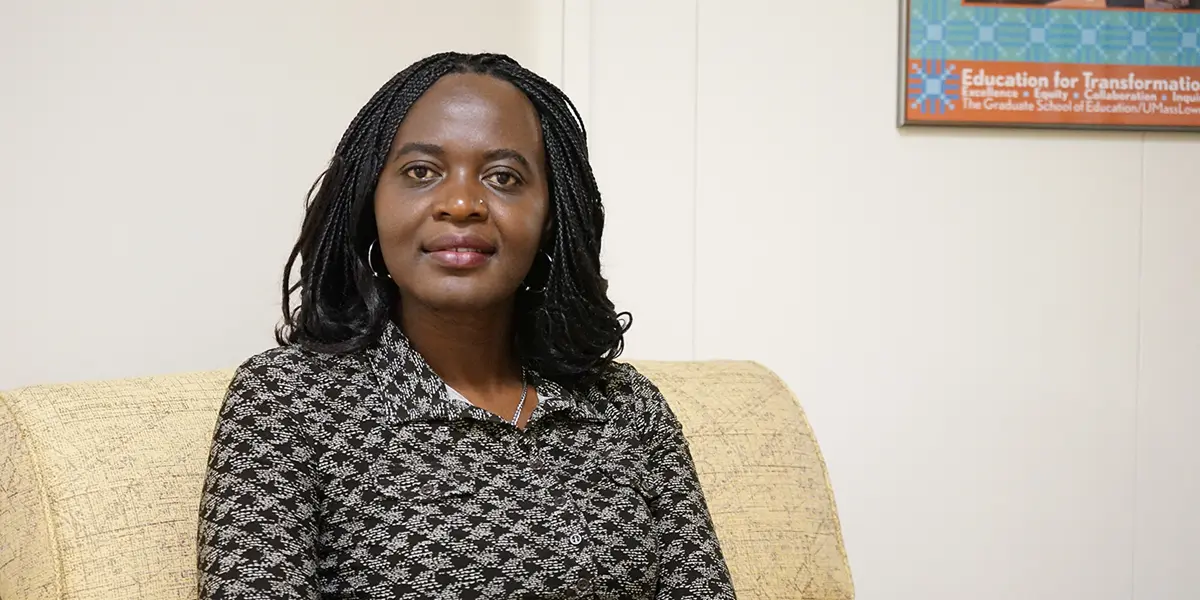Asst. Prof. of Education Robai Werunga grew up in Kenya, where she earned a teaching degree in religious studies and Swahili.
In the United States, there was no demand for those skills, so she found a job working with adults with developmental disabilities. It was eye-opening, because in Kenya she had never learned about special education for children with behavioral and learning disabilities. There, “special education” meant special schools to accommodate children who were blind, deaf or suffering from other physical disabilities.
Intrigued, Werunga decided to earn a teaching license and master’s degree in special education at a state college in North Carolina.
“It opened up a different world for me,” she says. “Looking back, in Kenya, I had classmates who really struggled. There were children who were held back in grade school for three or four years. Now, I realize they had learning disabilities.”
Werunga taught in public schools for several years, but became frustrated by her limited ability to influence policies and practices outside her own classroom. So she returned to school again, earning a Ph.D. in special education at the University of North Carolina-Charlotte.
She became interested in how cultural factors play a role in determining whether students from culturally and linguistically diverse backgrounds are identified as having learning disabilities and behavioral problems.
For example, a few decades ago, native Spanish speakers used to be placed in special education at higher rates than their English-speaking classmates. However, recent research shows that fewer Latino students are identified as having learning disabilities compared with their peers, leading Werunga to question whether misplaced cultural sensitivity might be leading to underdiagnosis.
“Language is a delicate line when it comes to the identification process; misdiagnosis can go either way,” she says.
Werunga joined the School of Education faculty as part of a global hiring initiative in 2018. She is an advocate of early, progressive interventions for all children, so that teachers and schools can quickly assess which children just need a little extra help and which ones need more intensive support. She is especially passionate about the need for better writing instruction.
“Unfortunately, writing is just not being taught as it should be – and yet children, especially English language learners, are referred for special education services for their writing,” she says.
Werunga is also interested in the intersection between culture and educators’ decisions to label children as having behavioral issues.
“In a lot of cultures – including mine – eye contact with an adult is not respectful, especially when that adult is correcting your behavior,” she says. “But here, a lack of eye contact can be construed as disrespectful.”
Because “minorities” will soon be a majority of students in public schools nationally, it’s increasingly urgent to diversify the teaching force – and to make cultural responsiveness training an integral part of teacher training, she says.
“A couple of workshops on cultural responsiveness isn’t enough,” she says. “We need to embed it in everything we teach.”


